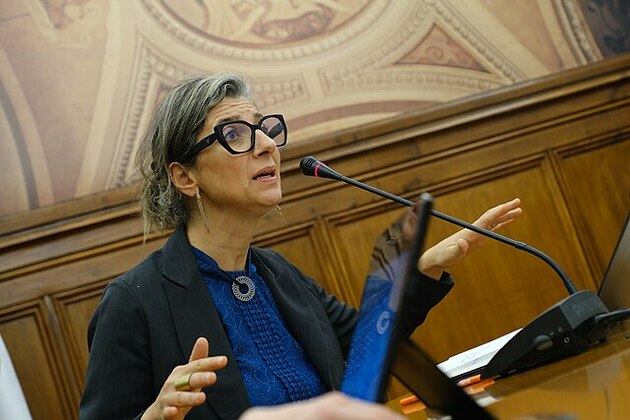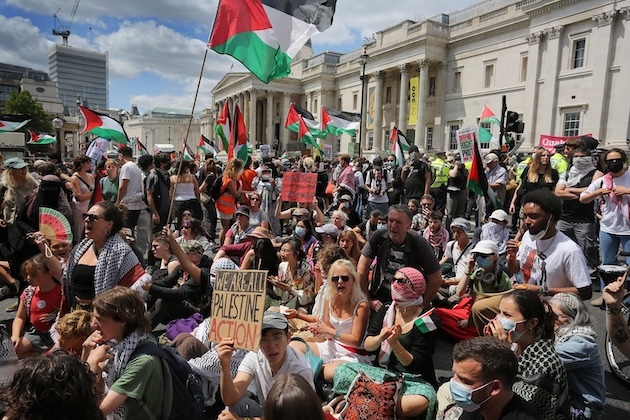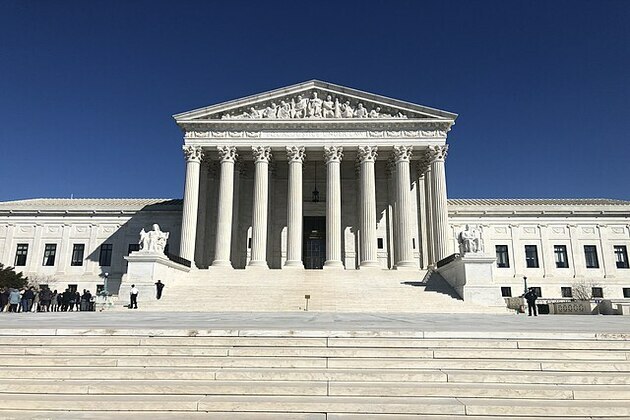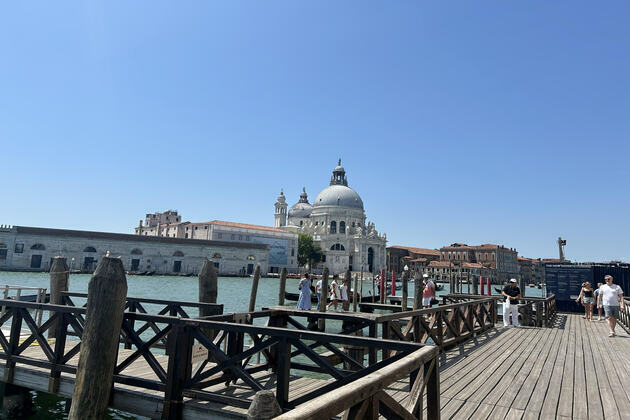Europe Rights Court Rules Russia Responsible For Litvinenko Death
RFE
21 Sep 2021, 17:45 GMT+10
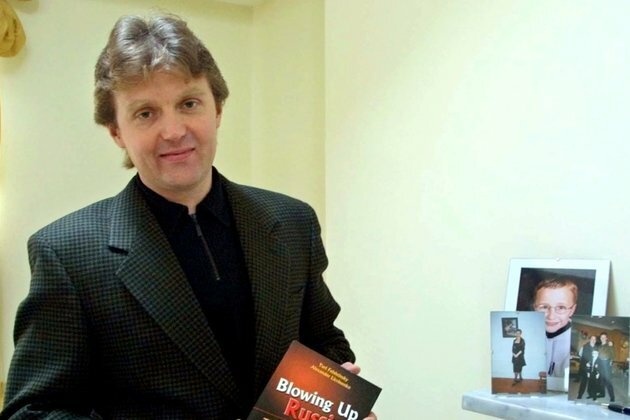
The European Court of Human Rights (ECHR) has ruled that Russia was responsible for the 'assassination" of former Russian security officer Aleksandr Litvinenko in London in 2006.
Litvinenko, 43, an outspoken critic of Russian President Vladimir Putin, fell ill on November 1, 2006, after he drank tea that was poisoned with polonium-210, a rare, highly radioactive isotope.
He died several days later in the hospital.
A British inquiry concluded in 2016 that Putin probably approved a Russian intelligence operation to murder Litvinenko.
It also identified two Russians -- Andrei Lugovoi, now a Russian lawmaker, and Dmitry Kovtun -- as the primary suspects.
In its ruling issued on September 21, the Strasbourg-based ECHR said it had established 'beyond reasonable doubt' that the killing had been carried out by Lugovoi and Kovtun, and that 'there was a strong prima facie case that, in poisoning Mr Litvinenko, Mr Lugovoi and Mr Kovtun had been acting as agents of the Russian state."
Infographic: A Timeline Of Russian Poisoning Cases
Both men and Russia have denied any involvement in Litvinenko's death.
The Kremlin rejected the court ruling, calling it 'unsubstantiated.'
'The ECHR hardly has the authority or technological capacity to possess information on the matter. There are still no results from this investigation and making such claims is, at the very least, unsubstantiated,' Kremlin spokesman Dmitry Peskov said.
Reuters quoted Lugovoy as saying the ECHR ruling was 'absolutely politically motivated.'
Litvinenko, a former officer in Russia's Federal Security Service (FSB), fled Russia in 1999 after revealing an alleged plan by the FSB to kill tycoon Boris Berezovsky.
Berezovsky had been prominent among the group of Russian businessmen known as the oligarchs who grew rich from the privatization of state assets following the collapse of Soviet communism.
As a Kremlin insider under former Russian President Boris Yeltsin, Berezovsky helped Putin rise to succeed his predecessor in 2000.
But when Putin moved to curb the political powers of the oligarchs, Berezovsky left Russia for self-imposed exile in Britain, where his criticism of Putin grew.
In 2006, the year Litvinenko was poisoned in London, Putin signed a law authorizing security agencies to carry out targeted assassinations abroad.
In January 2016, British Judge Robert Owen, who led an inquiry into Litvinenko's death, said it was probable that Putin, a former Soviet KGB officer who once headed the FSB, had approved the operation.
SEE ALSO: Name Your Poison: Exotic Toxins Fell Kremlin Foes
Owen said he was certain Lugovoi and Kovtun killed Litvinenko by placing the lethal dose of polonium-210 in his tea during a meeting at a London hotel.
British investigators have found traces of polonium-210 in hotels, restaurants, and aircraft used by Lugovoi, who was reportedly treated for radiation poisoning in Moscow in December 2006.
Lugovoi was elected a member of the Russian State Duma in 2007 and Putin awarded him a state medal 'for services to the fatherland' in 2015.
Copyright (c) 2018. RFE/RL, Inc. Republished with the permission of Radio Free Europe/Radio Liberty, Washington DC 20036
 Share
Share
 Tweet
Tweet
 Share
Share
 Flip
Flip
 Email
Email
Watch latest videos
Subscribe and Follow
Get a daily dose of Maine Mirror news through our daily email, its complimentary and keeps you fully up to date with world and business news as well.
News RELEASES
Publish news of your business, community or sports group, personnel appointments, major event and more by submitting a news release to Maine Mirror.
More InformationUS Editorials
SectionOperations back to normal after multiple Canadian airports hit with bomb threats
Operations back to normal after multiple Canadian airports hit with bomb threats
President Trump wants to slash subsidies for small airports across rural America
President Trump wants to slash subsidies for small airports across rural America
Glasgow is failing music fans with its appalling public transport - The Herald
Glasgow is failing music fans with its appalling public transport - The Herald
Ron Paul- A Big Beautiful Bill for the military-industrial complex
Ron Paul- A Big Beautiful Bill for the military-industrial complex
No Kings- Why California needs the Libertarian message more than ever
No Kings- Why California needs the Libertarian message more than ever
Nationalizing politics benefits Gavin Newsom but hurts Senate Democrats
Nationalizing politics benefits Gavin Newsom but hurts Senate Democrats
International
SectionOver 60 companies named in UN report on Israel-Gaza conflict
GENEVA, Switzerland: A new United Nations report alleges that dozens of global corporations are profiting from and helping sustain...
UK lawmakers desigate protest group as terrorist organization
LONDON, UK - Lawmakers in the United Kingdom have voted overwhelmingly to proscribe the direct-action group Palestine Action as a terrorist...
Dalai Lama to address Buddhist conference, reveal succession plan
DHARAMSHALA, India: The Dalai Lama is set to address a significant three-day conference of Buddhist leaders this week, coinciding with...
US Supreme Court backs Texas efforts to shield minors online
WASHINGTON, D.C.: In a significant ruling last week, the U.S. Supreme Court upheld a Texas law requiring age verification for users...
Turkey, France battle wildfires amid early Europe heatwave
ISTANBUL/PARIS/BRUSSELS: As searing temperatures blanket much of Europe, wildfires are erupting and evacuation orders are being issued...
Venetians protest Bezos wedding with march through the town
VENICE, Italy: Over the weekend, hundreds of protesters marched through the narrow streets of Venice to voice their opposition to billionaire...







